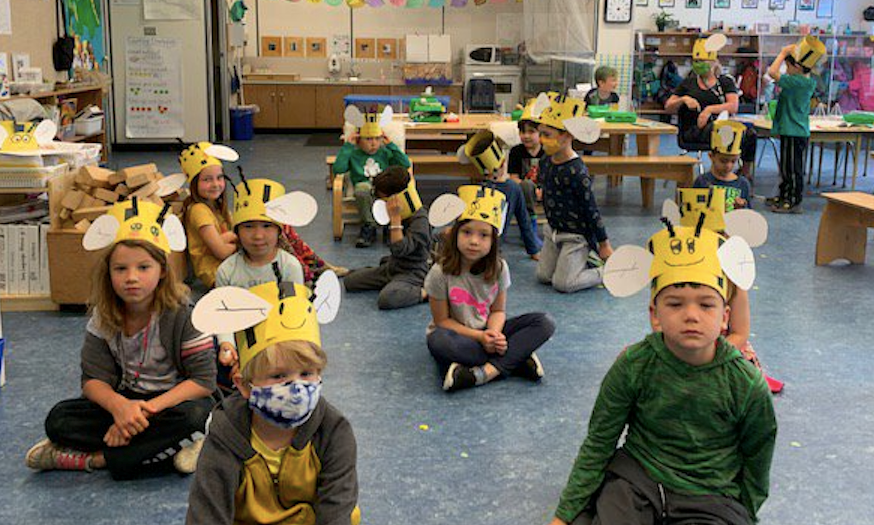Butterflies may be making a comeback and, if they do, it’s thanks to Coquitlam elementary students.
Two Coquitlam schools took part in a Butterflyway Citizen Science School BioBlitz from May 30 to June 4, counting dozens of butterflies, bees and other important pollinators.
“We also found some ants,” said Terran Dosen, a teacher at Ranch Park Elementary whose Grade 2/3 class participated in the project.
“It was a great opportunity for the students to see how important pollinators are to plants and humans, and why we should protect them. My students have already been inspired to start creating new pollinator habitats in their own backyards to attract and protect these important species,” said Dosen in news release.
The Ranch Park students joined students from across Metro Vancouver, Vancouver Island and the Tri-Cities to record and photograph key information about local wild pollinator populations.
Baker Drive Elementary students in Coquitlam also participated in the blitz.
With guidance from their teachers, the students organized the data, made butterfly- and bee-themed artwork, dressed up as pollinators and joined a BioBlitz wrap-up party on June 4.
The BioBlitz is part of the David Suzuki Foundation’s National Butterflyway Project, which aims to educate Canadians about the importance of butterflies and bees and create “butterfly pathways,” in school grounds and garden patches across the province.
The David Suzuki Foundation’s B.C. Butterflyway Citizen Science work is guided by a small group of dedicated Butterflyway Rangers, UBC students and scientists.
Tara Moreau, associate director of UBC’s Botanical Garden and a member of the committee, believes that engaging young students in biodiversity will help them become responsible climate citizens when they grow up.
“The climate is changing faster than we are,” Moreau said. “Citizen science is an increasingly important tool to support climate action and biodiversity protection.”
According to the foundation, insects like wild bees and butterflies are in trouble. It is estimated that insect populations have declined worldwide by 45% in the past 40 years.
The Canadian Wildlife Federation, meanwhile, states that Monarch butterflies are in steep decline due to habitat loss, pesticides and herbicides and climate change.





